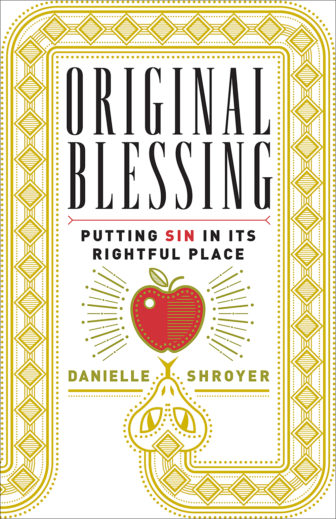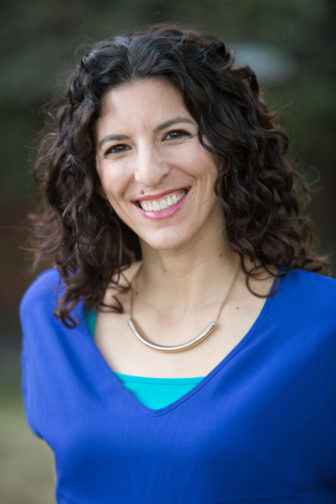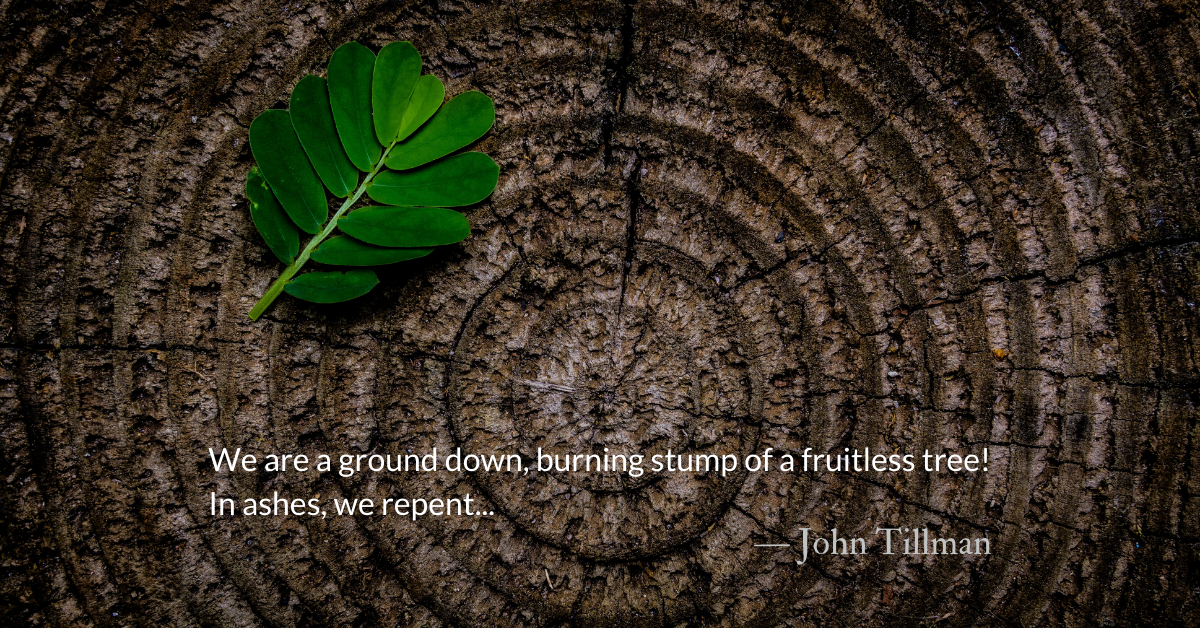LGBTQ CHRISTIANS in a
Universe of Christian Anathemas
"Our job is to love others without stopping to inquire
whether or not they are worthy." - Thomas Merton
"In God's love all are worthy." - R.E. Slater
Proposal: "Can We All Just Learn To Get Along," said Rodney King after he was Beaten by Police
Yes, I get it, having been raised in fundamentally conservative Christian fellowships with all their anathemas
As the church saying goes, "We proclaim who we are by proclaiming what we're against." But the LGBTQ community are people too, and the last time I read the bible God says, He loves everybody, not just those prideful few who declare themselves Christians by judging everyone else around them as less worthy of God than themselves.
Of course, by extending this argument I can be just as guilty of intolerance and unloving acts as my Christian brothers and sisters who proclaim that part of the church - their gay brothers and sisters - aren't worthy of God's love. So let's not do this. I cannot agree with the church's LGBTQ stance against gays without first recognizing a few things the recent Vatican ruling on March 16, 2021, had neglected....
What are they? Here's a few to start. Perhaps you might come up with a few more...
First Disagreement: Civil Democracies Cannot Exclude Societal Distinctions
On the matter of refusing fellowship with the LGBTQ community I would disagree with all similarly outcomed Catholic and Protestant rulings. Here's why....
Rather than splitting hairs over personal conduct our responsibility is to love and respect one another giving full equality of rights to every individual in a civil democracy.
But one might answer that the church isn't a civil democracy. And yet, isn't the church to take in all men and women in the gospel of Christ without distinction? To love all of God's children?
Since when is the church allowed to make a distinction of who is worthy for heaven and who is worthy of hell? I see a lot of heaven-bound Christians preaching and acting in hellish-bound ways. And this is the tragedy of Christian faiths which have become all about condemning rather than receiving and bringing in lost sheep to their folds.
This kind of Christian faith appeals to its legalistic heart, which is never a good thing to promote.
Second Disagreement: But the Bible Has Many Verses on Gay Sex
Yes it does. But was it the act, or the usury, of the other which the bible is protesting? And if the latter, since when do straight people get away with misusing or abusing one another in sexually addicted or unhealthy ways? A pure relationship is one which doesn't use the other for self-gratification.
I remember reading a gay Christian once who had reviewed at length every one of the major "gay sin verses" in the bible. He was quite thorough. His conclusion? Not quite what the typical conservative Christian would come up with.
Third Disagreement: Do We Emphasize the Act or the Relationship?
Rather than concentrating on the sexual act I might suggest we concentrate on the relationship - whether it is one of loving faithfulness or not. The attitude of love should spill over into how we treat one another.
However, one who is plagued by sexual addiction cannot easily rid themselves of its abusive mindedness (whether of one's self or of another). There is a world of pained psychosis, psyche, and suffering out there. Common morality rules fall apart with such individuals trying to survive themselves and their environments.
Sexual addiction is a long term problem involving perhaps one's self-worth, of feelings of worthlessness, of childhood abuse, of deep trauma, and so on. But sexual addiction and the condition of being a gay person are two different things. They are not even close to being in the same category too many of us foolishly lump together in our Christian dialectics.
To accuse a gay person of being a sex addict is both unbecoming, ignorant, unhelpful, and deeply divisive. I believe Christians can be wiser and more longsuffering towards both the gay communities and their harmed sisters and brothers than to bluntly state their personal biases and intolerance.
"Fall in love with God as the Fountain of all things.
Cultivate the virtue of compassion." - Thomas Merton
Fourth Disagreement: Are Straight, Heterosexual Relationships Any Less Different Than Gay Relationships?
If any sexual relationship is abusive, addictive, perverted or unhealthy in some way then let's generally agree that the individuals involved are working through some fairly complex issues in their lives. That mere external judgment cannot help or serve in any way as adequate replacements for constructive repair of the internally injured soul.
"For what we judge for one we must judge for all... even ourselves. Jesus said, 'First look to the plank in your own eye before attending to speck in the other's eye'" (Matthew 7.3).
"Isolating the gay act alone in judgmental huff-and-puff is unhelpful." - re slater
Fifth Disagreement: Faithfulness speaks to Covenant Fidelity.
If fidelity is warranted for heterosexual couples than it should be professed by gay couples as well - which is as true for those gays who do practice fidelity towards one another as they are similarly untrue for those heterosexuals who don't practice fidelity towards one another.
We should admit that there's plenty of failure on both sides of the aisle in this matter. But again, let's not overly focus on the sexual act but on the corporeal relationship between one another....
And why? Because all these disagreements are meant to lift one another up in welcoming embrace and love without distinction of personages. Thus, marriage, preaching, church ministries are to be encouraged and supported both for faithful gay and faithful non-gay couples. If it's good for one then its good for the other, and vice versa.
One last thought pertaining to unmarried couples... perhaps we should stretch out our definition of marriage a bit to those couples - whether same sex or straight - who do not marry but who remain in faithful fellowship to one another.
There are many reasons people do not marry. And as many reasons for gay couples who do wish to marry but cannot and are prevented from marriage.
So apart from the civil contract, let's be a bit more understanding of one another and a lot less judgmental in our opinions. Christians are a judgmental lot when taken together. Let's unlearn these attitudes we have too easily accepted into our holier-than-thou circles of fellowship, shall we?
Sixth Disagreement: The Legal Status of Civil Unions Do Not Provide the Fullest Legalese Needed
We all know, or should know, that the legal status of civil unions do not provide the broadest possible legal protections and societal uplift as do monogamous gay marriage licenses under the law. From hospital rights to inheritance, from personal property settlement to societal acceptance, recognized civil unions are less robust than marital unions between couples.
In a civil democracy there should never be any status difference in relational covenants - whether gay or straight. We all know civil unions are not covered as broadly financially, tax-wise, medically, or legally as are marital rights as component structures of societal inclusion symbols.
The marital title is a more broadly accepted status over that of a civil union. It simply provides far more protection and safeguard. As such, gays wishing to marry must be wholly acceptable within a civil democracy to allow for their fullest civil and marital protections. And this should also include a church's positive doctrinal stances to err on the side of fellowship AND ministry within the body of Christ. In God there should never be a "distinction of personages."
Seventh and last Disagreement: Evolutionary Drift and Biological Outcome
Let's consider one last, and I think, one very substantial argument as a universal difference maker between gays and straights. This greatly will apply to the Trans-gay population who are caught betwixt-and-between sexual identities (cis, binary, non, neutral, etc).
That of evolutionary drift....
"Evolutionary drift recognizes nature's experimental differences between the human psyche, spirit, mindset, and physiology of one another. The LGBTQ community tells many stories, but the biological one is another story which should be considered. Do not accuse someone of something outside of their control." - re slater
When a person is born differently, as in the sexually amorphous, or the inspecific sexual identity sense of oneself, society must generously make allowances for the "acts of God" presented through nature which often creates a challenged universe for those gifted recipients.
These dear ones should be regarded as specially as we do ourselves. The simplest response we must have is the one deeply bearing love, kindness, respect, and understanding.
We are all driven by differing makeups and backgrounds. In a civil democracy we seek unity not division. And in religious faith, we should be seeking loving embrace over condemnatory acts of damnation.
"Learn to err on the side of compassion. It makes both society and your church all the better for the promise-keepers each communion avows to the other in a spirit of toleration with one another." - re slater
And forget the counseling component, unless its really needed.
The Christian organization Exodus learned a hard lesson when attempting to revoke, reduce, or remove an individual's biological makeup. It learned that no amount of counseling can help change another from being who they are.
More the rather, Exodus' well-intentioned ministries drove those loved ones to greater acts of anger, inconsolation, grief, guilt, even suicide. The lessons learned? "Never force one's religious views or dogmas on to another."
"God's love is not about force but about walking with one another through life's many challenges." - re slater
"The sick Jesus was referring to were the self-righteous and legalistic religious leaders who deigned to judge men they believed as unholy and condemned by God. Ironically, it was these same religious leaders who could not see their own unholy offenses before God as they stood condemned in their own condemnations.
"Such moralists were known as hypocrites, saying one thing but doing another, as they went about speaking death into those around them. Learn to speak life into others instead. Do not be a hypocrite." - re slater
Learn then to live in peace with one another.
Even today's churches are trying to find their way through the vernaculars of past condemnatory creedal faith formulas as reported here in the Vatican news below. Yes, the Vatican failed its greater church fellowship by not recognising, nor receiving, gay fellowships into their ranks.
In time, perhaps, this may change, but for now, like their Protestant Church brethren, the Catholic Church stayed with its older, unrelenting attitudes against the LGBTQ community.
Lastly, I might suggest we rework our unhealthy religious statements and dogmas drilled into our heads and hearts in light of what we know of a loving God.... As versus an unloving God of judgment we too quickly proclaim to our shame along with our ungodly, ill-considered responses.
Peace, my friends, Peace. Learn to pursue Peace.
R.E. Slater
March 17, 2021
* * * * * * * * * *
 |
| Pope Francis celebrates mass on the occasion of 500 years of Christianity in the Philippines, in St. Peter's Basilica, at the Vatican, Sunday, March 14, 2021. (Tiziana Fabi/Pool photo via AP) |
Vatican bars gay union blessing, says God ‘can’t bless sin’
by Nicole Winfield
ROME (AP) — The Vatican declared Monday that the Catholic Church won’t bless same-sex unions since God “cannot bless sin.”
The Vatican’s orthodoxy office, the Congregation for the Doctrine of the Faith, issued a formal response to a question about whether Catholic clergy have the authority to bless gay unions. The answer, contained in a two-page explanation published in seven languages and approved by Pope Francis, was “negative.”
The note distinguished between the church’s welcoming and blessing of gay people, which it upheld, but not their unions. It argued that such unions are not part of God’s plan and that any sacramental recognition of them could be confused with marriage.
The note immediately pleased conservatives, disheartened advocates for LGBT Catholics and threw a wrench in the debate within the German church, which has been at the forefront of opening discussion on hot-button issues such the church’s teaching on homosexuality.
Francis DeBernardo, executive director of New Ways Ministry, which advocates for greater acceptance of gays in the church, predicted the Vatican position would be ignored, including by some Catholic clergy.
“Catholic people recognize the holiness of the love between committed same-sex couples and recognize this love as divinely inspired and divinely supported and thus meets the standard to be blessed,” he said in a statement.
The Vatican holds that gay people must be treated with dignity and respect, but that gay sex is “intrinsically disordered.” Catholic teaching says that marriage is a lifelong union between a man and woman, is part of God’s plan and is intended for the sake of creating ew life.
Since gay unions aren’t intended to be part of that plan, they can’t be blessed by the church, the document said.
“The presence in such relationships of positive elements, which are in themselves to be valued and appreciated, cannot justify these relationships and render them legitimate objects of an ecclesial blessing, since the positive elements exist within the context of a union not ordered to the Creator’s plan,” the response said.
God “does not and cannot bless sin: He blesses sinful man, so that he may recognize that he is part of his plan of love and allow himself to be changed by him,” it said.
Francis has endorsed providing gay couples with legal protections in same-sex unions, but that was in reference to the civil sphere, not within the church. Those comments were made during a 2019 interview with a Mexican broadcaster, Televisa, but were censored by the Vatican until they appeared in a documentary last year.
While the documentary fudged the context, Francis was referring to the position he took when he was archbishop of Buenos Aires. At the time, Argentine lawmakers were considering approving gay marriage, which the Catholic Church opposes. Then-Cardinal Jorge Mario Bergoglio instead supported providing legal protections for gays in stable unions through a so-called “law of civil cohabitation.”
Francis told Televisa: “Homosexual people have the right to be in a family. They are children of God.”
Speaking of families with gay children, he said: “You can’t kick someone out of a family, nor make their life miserable for this. What we have to have is a civil union law; that way they are legally covered.”
In the new document and an accompanying unsigned article, the Vatican said questions had been raised about whether the church should bless same-sex unions in a sacramental way in recent years, and after Francis had insisted on the need to better welcome gays in the church.
It was an apparent reference to the German church, where some bishops have been pushing the envelope on issues such as priestly celibacy, contraception and the church’s outreach to gay Catholics after coming under pressure by powerful lay Catholic groups demanding change.
In a statement, the head of the German bishops’ conference, Bishop Georg Bätzing, said the new document would be incorporated into the German discussion, but he suggested that the case was by no means closed.
“There are no easy answers to questions like these,” he said, adding that the German church wasn’t only looking at the church’s current moral teaching, but also the development of doctrine and the actual reality of Catholics today.
Bill Donohue, president of the conservative Catholic League, praised the decision as a decisive, non-negotiable “end of story” declaration by the Vatican.
“The Vatican left nothing on the table. The door has been slammed shut on the gay agenda,” Donohue wrote on the League’s website, calling the document “the most decisive rejection of those efforts ever written.”
In the article, the Vatican stressed the “fundamental and decisive distinction” between gay individuals and gay unions, noting that “the negative judgment on the blessing of unions of persons of the same sex does not imply a judgment on persons.”
But it explained the rationale for forbidding a blessing of such unions, noting that any union that involves sexual activity outside of marriage cannot be blessed because it is not in a state of grace, or “ordered to both receive and express the good that is pronounced and given by the blessing.”
And it added that blessing a same-sex union could give the impression of a sort of sacramental equivalence to marriage. “This would be erroneous and misleading,” the article said.
Esteban Paulon, president of the Argentine Federation of Lesbians, Gays, Bisexuals and Transsexuals, said the document was proof that for all of Francis’ words and gestures expressing outreach to gays, the institutional church wouldn’t change.
“Saying that homosexual practice — openly living sexuality — is a sin takes us back 200 years and promotes hate speech that unfortunately in Latin America and Europe is on the rise,” Paulon said. “That transforms into injuries and even deaths, or policies which promote discrimination.”
A similar note of exasperation was echoed in the Philippines, Asia’s largest Roman Catholic nation, where gay rights leader Danton Remoto said it simply wasn’t worth it to fight an old institution. “I keep on telling LGBTQ's to just have their civil unions done,” Remoto said. “We do not need any stress anymore from this church.”
Other critical commentators noted the Catholic Book of Blessings contains blessings that can be bestowed on everything from new homes and factories to animals, sporting events, seeds before planting and farm tools.
Juan Carlos Cruz, a Chilean survivor of sexual abuse who is gay and close to Francis, said the document was out of step with Francis’ pastoral approach and was tone deaf to the needs and rights of LGBT Catholics.
“If the Church and the CDF do not advance with the world ... constantly rejecting and speaking negatively and not putting priorities where they should be, Catholics will continue to flee,” he warned.
In 2003, the same Vatican office issued a similar decree saying that the church’s respect for gay people “cannot lead in any way to approval of homosexual behavior or to legal recognition of homosexual unions.”
Doing so, the Vatican reasoned then, would not only condone “deviant behavior,” but create an equivalence to marriage, which the church holds is an indissoluble union between man and woman.
Sister Simone Campbell, executive director of the U.S.-based NETWORK Lobby for Catholic Social Justice and an advocate for greater LGBTQ inclusion in the church, said she was relieved the Vatican statement wasn’t worse.
She said she interpreted the statement as saying, “You can bless the individuals (in a same-sex union), you just can’t bless the contract.”
“So it’s possible you could have a ritual where the individuals get blessed to be their committed selves.”
___
AP writers David Crary in New York, Kirsten Grieshaber in Berlin, Almudena Calatrava in Buenos Aires, Argentina, and Jim Gomez in Manila, Philippines, contributed to this report.





















